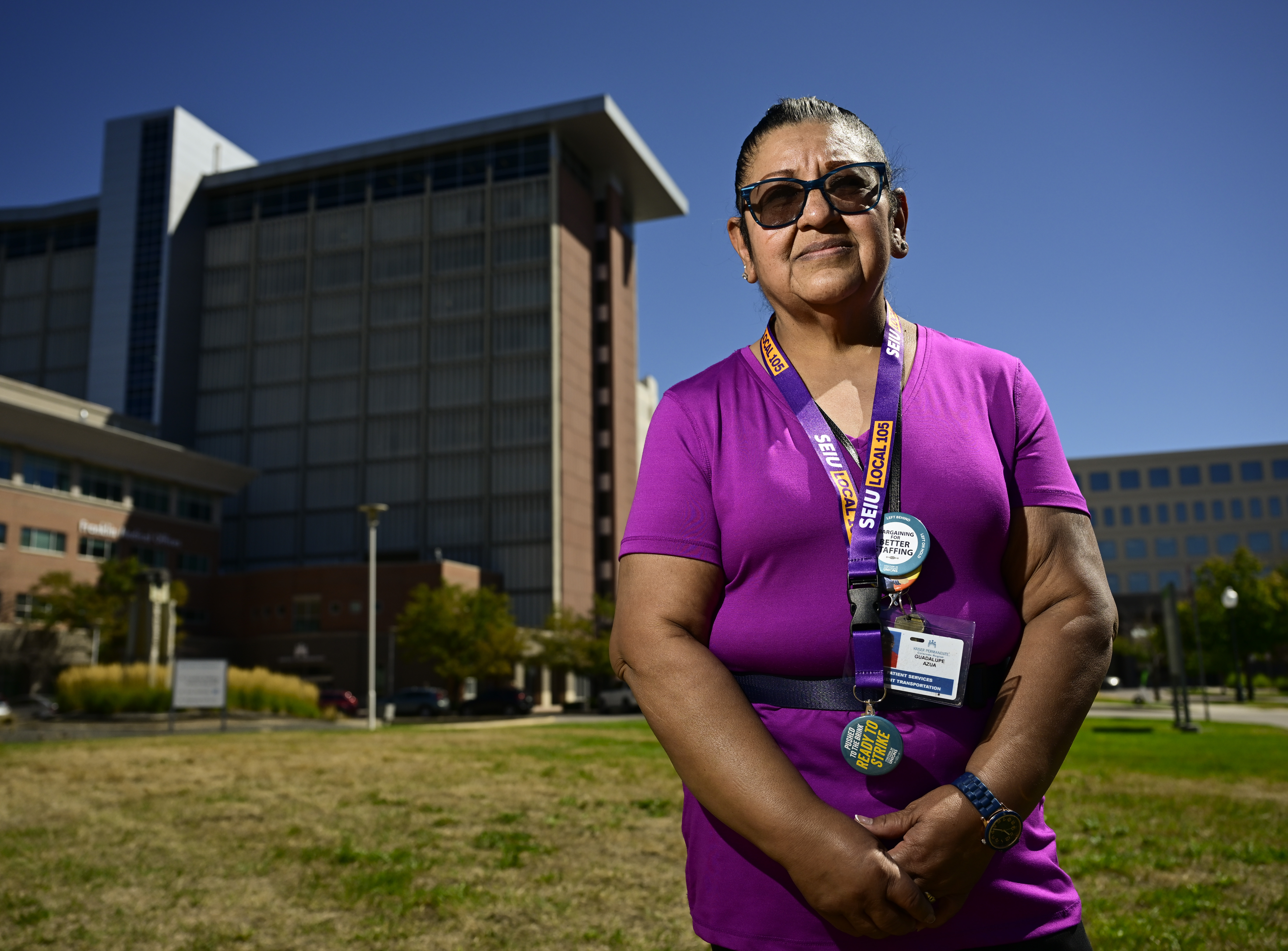Roughly 3,000 technicians and support workers at Kaiser Permanente Colorado are voting this week to authorize a possible strike if their union fails to reach a deal with management by the end of the month.
The members of Service Employees International Union Local 105 are voting through Friday afternoon to decide whether to authorize their bargaining committee to call a strike for up to two weeks. The existing contract expires Sept. 30.
The union represents nearly half of Kaiser Permanente’s 6,800 employees in Colorado, and includes front office workers, licensed practical nurses and people who work in billing and customer service at the health care provider’s Colorado facilities, as well as technicians in the laboratory, pharmacy and other areas.
A vote to authorize a strike doesn’t guarantee that one will happen. The union’s bargaining committee and the health system could reach a deal before the contract expires, and even if they don’t, the bargaining committee could determine they’d rather keep talking than walk out.
Stephanie Felix-Sowy, president of Local 105, said Thursday that she anticipated members would vote in favor of the authorization. Staffing hasn’t kept up with patient needs, and the system needs to raise pay if it’s going to recruit and retain workers, she said.
“Our members are basing their decision to strike on their fight for patient care,” she said.
Kaiser Permanente Colorado said in a statement that bargaining was proceeding, and that they expect to have a deal before the contract expires. The statement called the strike authorization vote a “pressure tactic” that didn’t reflect a breakdown in negotiations.
“Our priority is to reach an agreement that is mutually beneficial and ensures we can continue to offer our people market-competitive pay and outstanding benefits,” it said. “And we are confident that our new agreement will strengthen our position as a best place to work and ensure the high-quality care our members expect from us remains affordable and easy to access.”
Kaiser Permanente Colorado bills itself as the state’s largest nonprofit health care provider with more than 500,000 members. The organization has 33 medical offices in Colorado as well as a network of affiliated physicians and hospitals.
The 3,000 employees in Colorado voting on the strike-authorization question are among 85,000 nationwide, represented by the Coalition of Kaiser Permanente Unions, that could go on strike following the contract’s expiration.
Kaiser Permanente Colorado said the combined health system already had agreed to hire 10,000 people nationwide, and has hired about 6,500 of them so far. One remaining sticking point in negotiations is whether to continue paying the same wage scale nationwide, or to pay more in markets where health care wages are higher. The organization said the goal is for wages to be somewhat higher than the local average for comparable jobs.
Felix-Sowy said she hasn’t heard enough details to know if those news hires will do much to solve concerns about staffing in Colorado.
“For all we know, all of those 6,500 could be in California,” she said.
A different union, United Food and Commercial Workers Local 7, came close to going on strike at Kaiser Permanente Colorado in late 2021. The two sides reached a deal on wages, with provisions to increase staffing.
Kaiser Permanente Colorado said it has a plan to continue providing care if employees were to go on strike, but didn’t specify how that would work.
Lupe Azua, who estimated she walks four to six miles a day pushing patients’ wheelchairs around the 12-story office on Franklin Street in Denver, said she’s heard the plan is to bring in short-term staff, who typically earn more than those who are employed by Kaiser Permanente. She said that plan frustrates her, because some staff are earning less than the $25-an-hour minimum wage the union is seeking.
“We don’t have no money, but we can pay double (to bring in contract staff)? I don’t think so,” she said.
Veronica Rios, whose job is to sterilize and prepare trays of instruments for use in procedures, said she’d rather not strike, but that the organization’s decision not to pay bonuses to front-line employees this year sent a message they weren’t valued. Her day starts at 5:30 a.m., and sometimes the instrument team is short-staffed and has to stay after their usual shift, she said.
“It’s ridiculous that they think we’re overpaid,” she said. “If we have to (strike), we have to.”
Kaiser Permanente Colorado said it did offer a $500 bonus to employees last year. Normally, bonuses are based on how well the organization performed financially, but it lost money in 2022, the statement said.
Stephanie Patterson, a licensed practical nurse, said she also voted to authorize a strike. LPNs have never made as much at Kaiser Permanente as they did at area hospitals, but the trade-off was that they had more flexibility to work less than a full schedule — an option that’s largely gone away, she said.
“Kaiser’s not really willing to work with us,” she said. “They keep saying they care, but it feels like they don’t. It’s all about the bottom line.”
Source: Read Full Article

